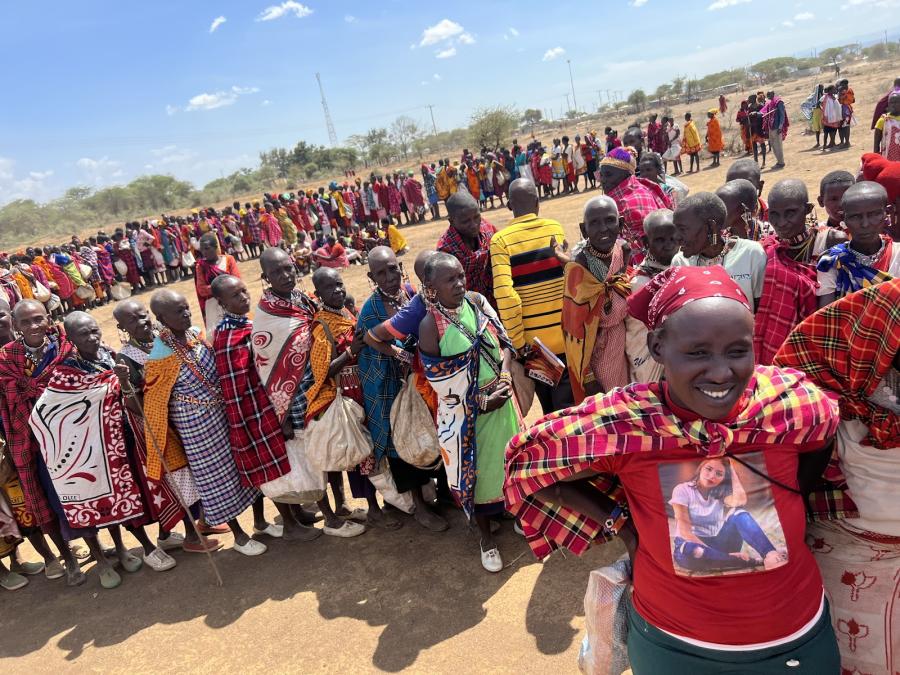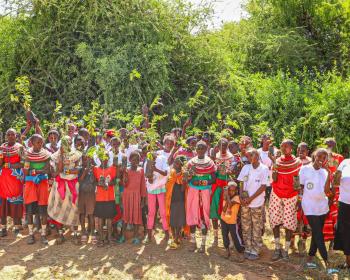Because Cultural Survival had to turn away students for the U'wa Struggle in Colombia conference in May 1998, the next student conference will be held on two separate dates, allowing twice as many students to participate. On December 7th and 9th the Curriculum Resource Program (CRP) at Cultural Survival, in association with 20 regional schools, will participate in a one day, indepth seminar for students grades 7-12 at the Harvard Graduate School of Education's Gutman Conference Center. The conference will focus on the pastoral Maasai of Kenya who now must fight to preserve their grazing land and cultural values. The conference will look at the various issues facing the Maasai and analyze these issues from an anthropological, historical, social, and economic view.
Not only are the Maasai losing land to agriculturalists and government officials, but they are also being expelled from their land by the government in order to create national parks. This separates the Maasai from the resources they have used for generations to survive. National Parks and Game Reserves are created in Kenya to respond to international conservation concerns and tourists who work to maintain certain animal species and their habitats. The Kenyun government is also being influenced by the interests of multilateral and bilateral development agencies that support the privatization of land in Kenya, further exacerbating the Maasai's problems.
During the conference, students will have the opportunity to learn about the different positions of the principal stakeholders involved in this issue-the Kenyun government, the Maasai, conservation groups, tourists, and international development agencies. The morning will be devoted to the guest speakers, Joseph Ole Simel, a Maasai community leader of the Loodoariak Community Land and Development Programme, and Elliot Fratkin, Professor of Anthropology at Smith College.
The students will then participate in roundtable discussions to analyze and dissect the problems of real national parks in Kenya. By discussing the pros and cons associated with Kenyun national parks, students and teachers will decide which aspects of the parks are favorable to the stakeholder's interests and which are not. The students will therefore choose park elements that they wish to improve upon or maintain.
During the final portion of the conference, participants will synthesize their information by designing an `ideal' national park in Kenya which is accountable to the interests of all stakeholders, particularly the Maasai.
For the first time, the CRP will sponsor a teacher workshop to bring the student conference issues to participating educators before the conference. The workshops will enable teachers to analyze the issue in-depth with Cultural Survival staff and prepare their classes well in advance of the event. We anticipate that these workshops will enrich both the conferences and the students' experience.
Article copyright Cultural Survival, Inc.



